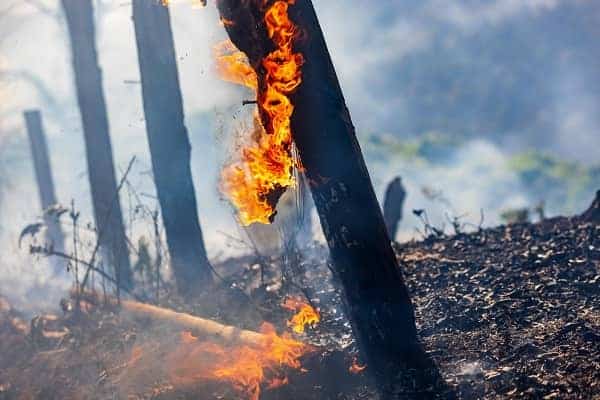In the famous novel “Lord of the Flies” by William Golding, Jack’s character is known for his ruthless and cunning behavior. But why did Jack set the island on fire?
One of his most dramatic actions occurs when he sets fire to the jungle to flush out Ralph, one of the main characters. The aftermath of this act is both surprising and ironic, as it ultimately leads to their rescue by a passing ship. This event raises the question: why did Jack set the island ablaze in Chapter 12, and what was his intention behind this drastic decision? In this article, we will look at Jack’s motivations and the effects of his actions, as well as the larger themes of the book.
Why did Jack set the island on fire? (Complete Answer)
In the Lord of the Flies, Jack sets the island on fire to flush Ralph out of the jungle. This event is a turning point in the novel, leading to both the climax and the resolution.
Throughout the novel, Jack and Ralph represent two opposing forces: order and chaos. Jack, who initially starts out as a leader of the choirboys, becomes increasingly authoritarian and power-hungry as the story progresses. In contrast, Ralph represents the voice of reason and morality while trying to maintain order and civilization on the island. The two characters are constantly in conflict, with Jack becoming increasingly aggressive in his attempts to overthrow Ralph and take control of the group.
In this context, it is clear that Jack’s decision to set the island on fire is part of his larger plan to take control of the group and eliminate Ralph. Jack believes that by flushing Ralph out of his hiding place, he can capture him and claim power over the group. He sets the jungle on fire to smoke Ralph out, thinking that he will be forced to come out into the open where Jack and his followers can capture him.
However, the outcome of Jack’s plan was not what he expected. The fire, which he intended as a weapon against Ralph, ironically ends up saving all the boys on the island. The smoke from the fire attracts the attention of a passing ship, which eventually rescues the boys from the island. In this way, Jack’s actions, which were intended to serve his own interests and consolidate his power, ultimately led to the story’s resolution and the group’s safety.
How does Jack set the island on fire?
In Lord of the Flies, Jack sets the island on fire by taking Piggy’s glasses against his will and using them as a magnifying glass to light a fire. The fire eventually grows out of control, igniting the forest on one side of the mountain. Jack’s reckless behavior and desire for power ultimately destroy the island’s natural resources.
What is ironic about the fire that Jack starts?
The irony about the fire that Jack starts is that he intends it as a means to find Ralph and eliminate him; however, the fire becomes a large-scale wildfire. As it reaches a peak, the smoke attracts a rescue boat to the island, ultimately leading to the boys’ salvation. The situational irony lies in the fact that Jack initially ridicules Ralph’s idea of a signal fire, calling it a “stupid” idea. However, Jack’s “stupid” fire ends up being the catalyst that saves the boys’ lives, highlighting the unpredictability of fate and the unintended consequences of our actions.
What explanation does the officer give for his arrival on the island?
The naval officer’s explanation for his arrival on the island is that his ship has come after seeing the blazing fire in the jungle. He spotted the smoke and flames and assumed someone might be stranded on the island. This indicates that the boys’ attempt to signal for rescue has finally been successful, but unfortunately, it comes too late for some of them.
Conclusion
In conclusion, Jack’s decision to set the island on fire in “Lord of the Flies” was motivated by his desire for power and control. This event is a turning point in the novel, leading to the climax and resolution. It highlights the larger themes of order versus chaos and the dangers of unchecked ambition. However, the outcome of this plan is not what Jack expected, as the fire, which he intended as a weapon against Ralph, ironically attracts the attention of a passing ship and leads to the rescue of all the boys on the island.
